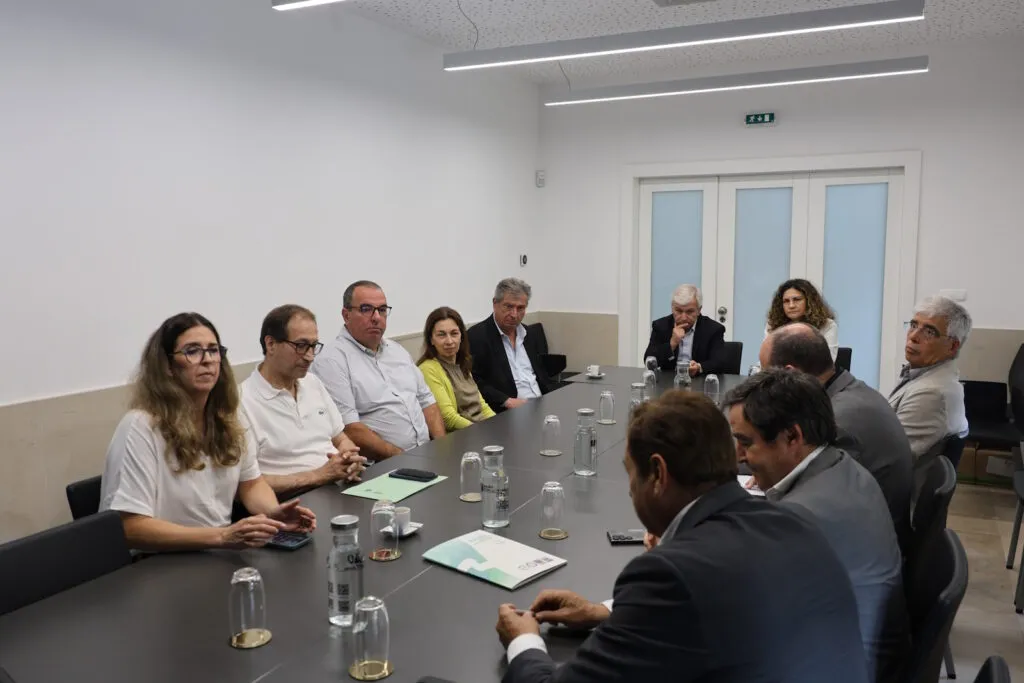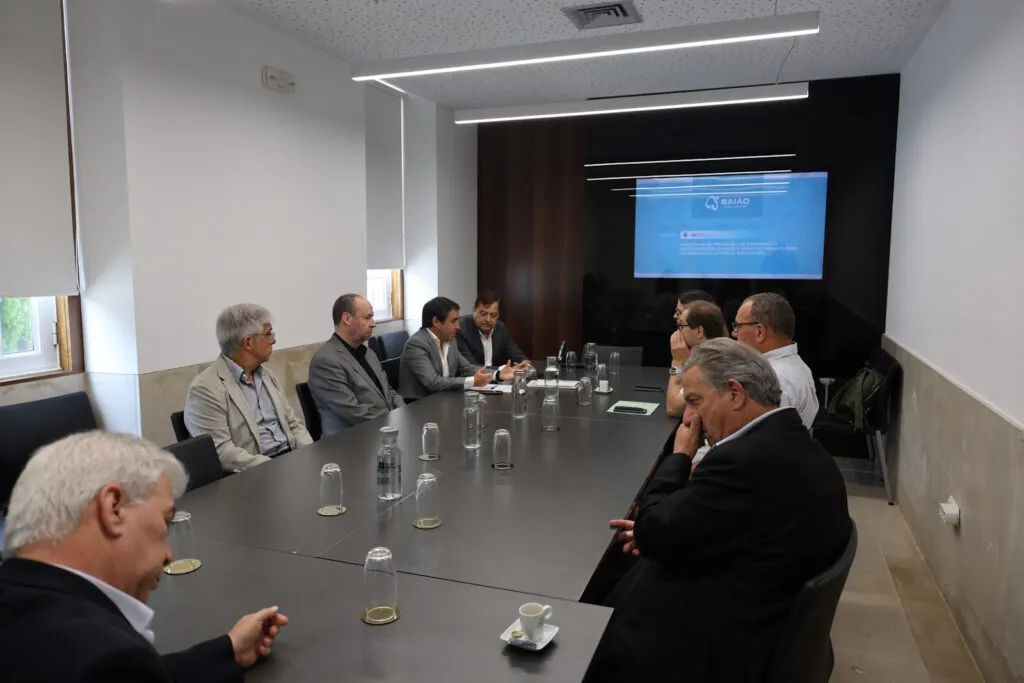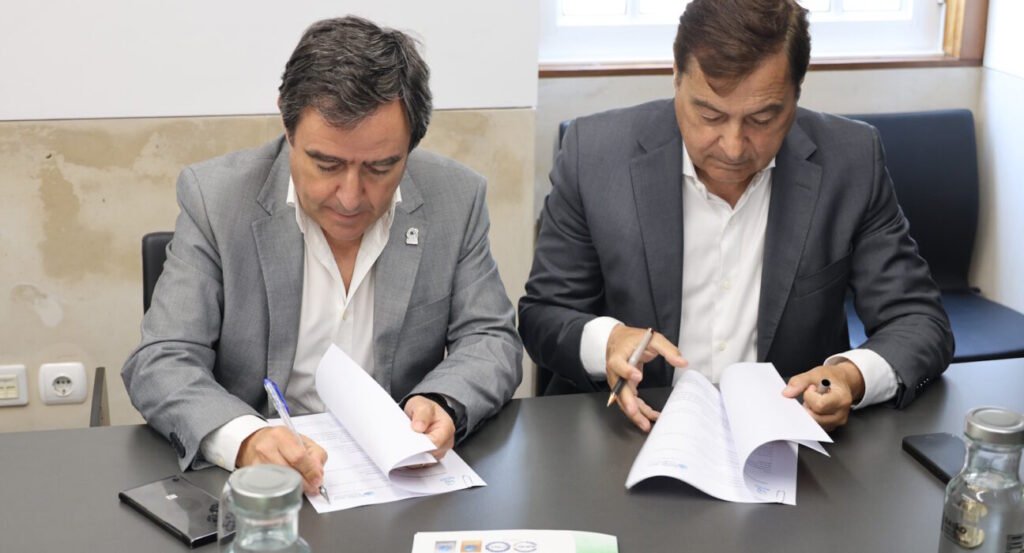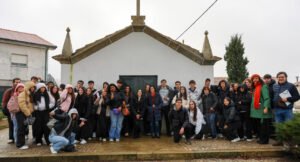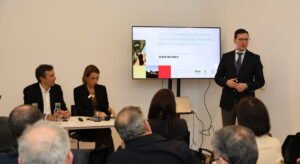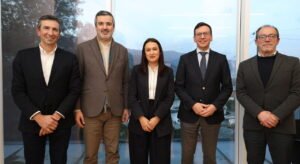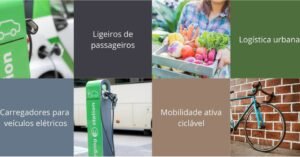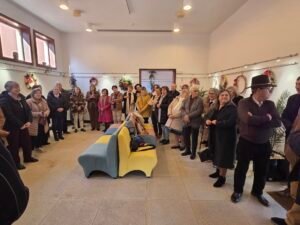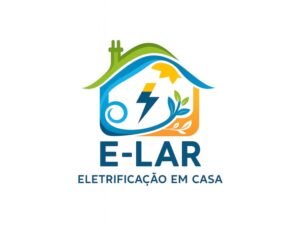On 13 June, at the Town Hall, the Municipality of Baião and Águas do Douro e Paiva, S.A. (AdDP) formalised a cooperation protocol aimed at developing projects with a direct impact on sustainability and the quality of life of the population.
This partnership aims to strengthen the autonomy of supply systems and contribute to reducing greenhouse gas emissions, in line with the objectives of carbon neutrality and Agenda 2030.
The Mayor of Baião, Paulo Pereira, highlighted that ‘this protocol represents another sure step in affirming Baião as a territory committed to sustainable and resilient development, making a concrete contribution to the fight against climate change.’
The agreement is based on the priority development axes of the Municipality of Baião, namely:
Ensuring consistency with other national climate strategies, within the framework of the Municipal Climate Action Plan, which defines the instruments for planning climate policy at the local level;
Promoting and safeguarding the interests of the population, including the regulation of land use and urban planning, in order to ensure harmonious and sustainable development;
Developing policies and projects to promote a more resilient and sustainable community based on the 2030 Agenda and the process of certifying Baião as a Sustainable Tourist Destination.
The use of renewable energy is also part of the protocol, with a significant investment in the sector expected, which will be reflected in energy consumption, with a consequent reduction in expenditure, which, in turn, will have an impact on consumers’ bills.
In this regard, António Borges, Chairman of the Board of Directors of AdDP, emphasised the importance of this partnership as ‘an example of collaboration between entities, essential to accelerate the energy transition, reduce system costs, and ensure an increasingly secure and sustainable water supply.’
In addition to the President, other members of the AdDP Board of Directors were present at the ceremony, namely Vítor Dias and Joana Felício, as well as heads of the Operations and Engineering Departments. Also participating, in addition to the Mayor of Baião, were the Councillor for the Environment, Henrique Gaspar Ribeiro, and the Head of the Planning and Land Management Division, Helena Monteiro.
INVESTMENTS IN WATER SUPPLY, SANITATION AND WATER RESOURCE MANAGEMENT
Since 2006, cumulative investment in this sector has exceeded €30 million, thanks to partnerships established with the public companies Águas do Norte, SIMDOURO and Águas do Douro e Paiva. This financial effort has made it possible to extend the coverage of water and sanitation services, modernise existing infrastructure and implement innovative resource management solutions.
The following investments are noteworthy:
New water supply source for Baião, which included the installation of the Abelhal catchment, the construction of a lift pipe, the construction of an intermediate reservoir and a pumping station in Sobreiral, as well as the reinforcement of the capacity of the Pousada Water Treatment Plant (WTP), promoted by Águas do Douro e Paiva.
Supply to Valadares – Zona Nascente, through the construction of a ‘high’ supply network connecting the Amarelhe reservoir to the Valadares reservoir. This infrastructure also supplies Viariz and may be extended to Gestaçô.
Expansion of the water supply and sanitation networks, an operation co-financed by the NORTE2030 programme, in a partnership between the Municipality of Baião and Águas do Norte;
Construction of the Mosteirô Wastewater Treatment Plant (WWTP), under the responsibility of SIMDOURO.
At the same time, the Municipality of Baião remains committed to enhancing the municipality’s main waterways. Work is underway on the Ovil River, through the creation of ecological corridors and other measures aimed at protecting and enhancing riverine ecosystems, and an application is being made for work on the Teixeira River.
In the field of water management, a project will also be launched to reuse treated wastewater for non-potable purposes, such as watering green spaces and washing pavements and vehicles, thereby reducing pressure on conventional water resources.
Paulo Pereira emphasised that ‘these investments represent a strong commitment to citizens’ quality of life, public health, the preservation of natural resources and adaptation to climate change, positioning Baião as an example of sustainable management,’ he assured.
